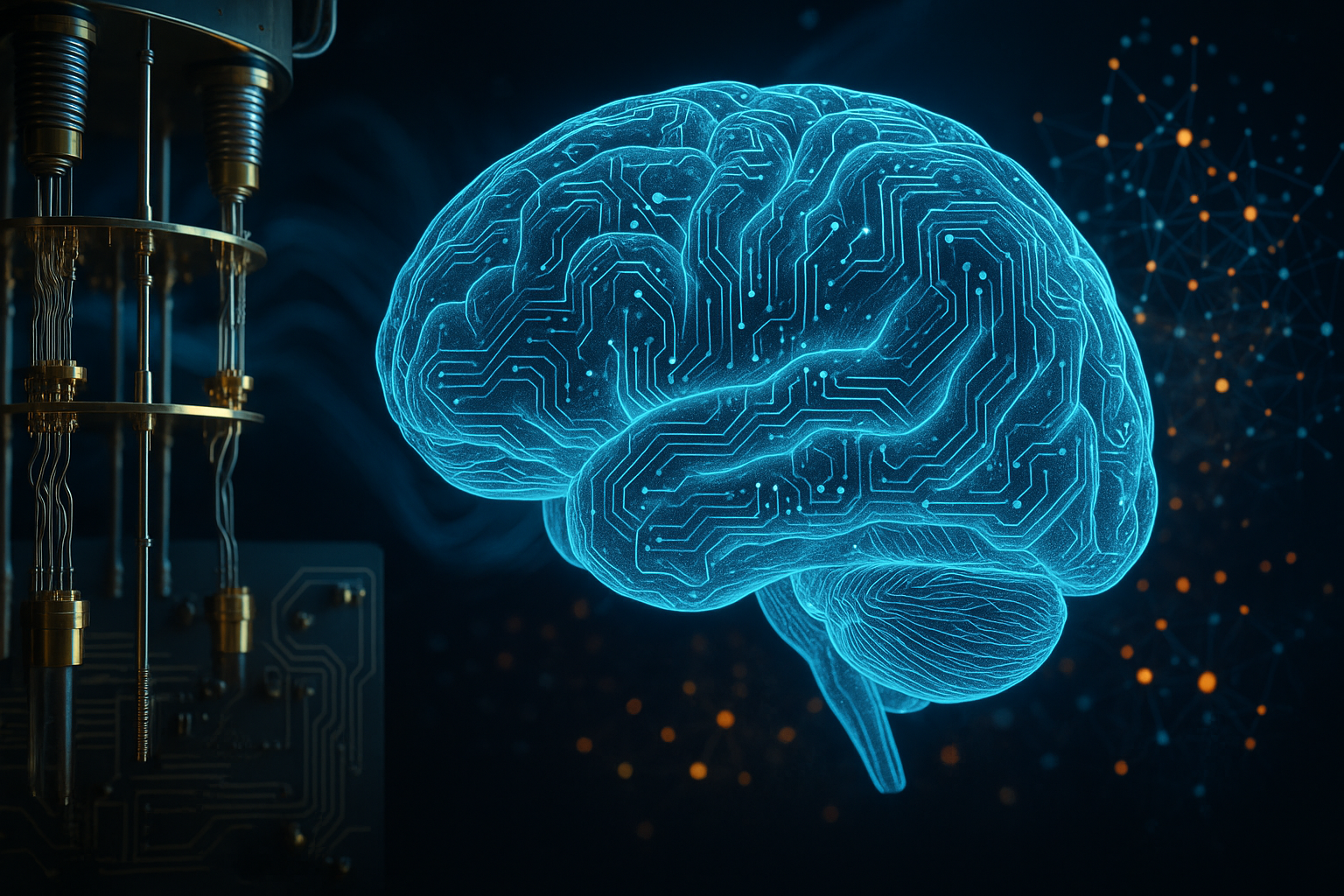From labs to real-world impact: Quantum artificial intelligence edges closer to reality
While quantum computing provides new capabilities to AI, the relationship is reciprocal. The study explains how AI helps overcome several challenges in implementing quantum technologies, particularly in the compilation and execution of quantum circuits. Quantum-circuit compilation is critical for mapping algorithms onto real quantum hardware, which is often constrained by noise and limited qubit connectivity. AI-driven algorithms, including reinforcement learning and graph neural networks, have shown the potential to optimize qubit routing and minimize error accumulation during execution.

A team of Italian researchers has unveiled groundbreaking insights into how quantum computing and artificial intelligence could merge to overcome some of the most pressing computational limits of modern science. The study published in AI offers a comprehensive roadmap for developing quantum artificial intelligence (QAI) as a strategic technology for the future.
Titled "Quantum Artificial Intelligence: Some Strategies and Perspectives", the paper explores how the fusion of AI and quantum computing (QC) can address complex challenges, from optimizing large-scale problems to enabling energy-efficient computation. The authors argue that this synergy can unlock new methods for pattern recognition, decision-making, and data analysis, areas where classical machines currently fall short.
How can quantum computing boost artificial intelligence?
The researchers describe how quantum mechanics introduces novel tools to enhance AI. Unlike traditional computing, which struggles with the intractability of many large-scale problems, quantum computing uses principles such as superposition, entanglement, and quantum tunneling to explore solution spaces more effectively. These properties enable quantum systems to process multiple configurations simultaneously, offering a path toward solving problems that classical machines cannot address efficiently.
The study discusses Chemical AI (CAI) - an innovative approach that mimics biological intelligence through chemical processes in liquid solutions, using quantum mixed states rather than fragile coherent quantum states. These mixed states can be manipulated without the risk of decoherence, making them more stable and energy-efficient. The authors highlight that CAI opens up the possibility of developing new quantum sensing systems and energy-saving computational methods.
The study also underscores the role of quantum computing in optimization tasks. By leveraging gate-based quantum algorithms such as the Quantum Approximate Optimization Algorithm (QAOA) and the Variational Quantum Eigensolver (VQE), researchers can address combinatorial optimization problems that are currently unsolvable in reasonable timeframes. Additionally, quantum annealers, a more mature quantum architecture, have already shown effectiveness in solving large-scale optimization problems by exploiting quantum effects to traverse energy landscapes efficiently.
Quantum machine learning (QML) is positioned as a key area where QAI could make a major impact. QML leverages quantum properties to handle data-intensive tasks and build models that can capture complex correlations. Hybrid frameworks, which combine classical and quantum methods, offer practical solutions in the short term, particularly on current noisy intermediate-scale quantum (NISQ) devices. This hybridization is expected to pave the way for future breakthroughs as quantum hardware continues to evolve.
How does AI contribute to advancing quantum computing?
While quantum computing provides new capabilities to AI, the relationship is reciprocal. The study explains how AI helps overcome several challenges in implementing quantum technologies, particularly in the compilation and execution of quantum circuits. Quantum-circuit compilation is critical for mapping algorithms onto real quantum hardware, which is often constrained by noise and limited qubit connectivity. AI-driven algorithms, including reinforcement learning and graph neural networks, have shown the potential to optimize qubit routing and minimize error accumulation during execution.
According to the study, these AI-supported compilation strategies are not merely technical optimizations; they are essential for unlocking the practical utility of quantum processors. Without efficient routing and noise-aware compilation, even the most advanced quantum algorithms may remain theoretical. Consequently, the study positions AI as an indispensable partner in realizing the promise of quantum computing.
Moreover, AI plays a role in error mitigation, an area that remains a major obstacle to scaling up quantum systems. Machine learning techniques can analyze hardware performance in real time, enabling dynamic adjustments to improve fidelity. This symbiotic relationship between AI and QC could accelerate the development of scalable, fault-tolerant quantum architectures.
What are the future directions for quantum artificial intelligence?
The authors foresee a gradual evolution where initial gains will focus on building stable and reliable quantum modules. Over the next decade, these modules are expected to reach a threshold where classical simulations can no longer keep pace, marking a turning point in computing history. This milestone will set the stage for practical applications where quantum systems outperform classical methods.
The paper highlights several strategic goals for future development:
- Exploring thermalized quantum mixed states to solve NP-hard problems and enhance pattern recognition without the energy costs associated with preserving coherent qubits.
- Advancing quantum machine learning to integrate incremental and continual learning, reducing the risk of catastrophic forgetting and improving adaptability in dynamic environments.
- Developing robust benchmarking frameworks to compare QML with classical machine learning and ensure its practical relevance.
- Pursuing interdisciplinary integrations, such as combining QML with tensor networks, neuromorphic architectures, and high-performance computing, to create powerful hybrid systems.
The authors also highlight the importance of hardware-aware compilation as quantum systems become increasingly complex. By aligning algorithm design with the physical constraints of the hardware, developers can ensure that future quantum devices deliver their full potential. Furthermore, the rise of quantum cloud computing and hybrid quantum-classical platforms signals that QAI will not remain a laboratory concept but will soon influence real-world applications across industries.
- FIRST PUBLISHED IN:
- Devdiscourse










